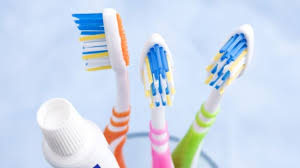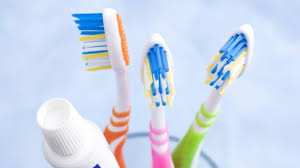
Teething Trouble.
How to encourage someone with dementia to brush their teeth
Just as we teach a young child to brush their teeth, someone with dementia needs some support and encouragement to do the same. It’s difficult for someone with dementia to understand the importance of carrying out this daily task when they no longer recognise the need.
Toothbrushing is often a cause of stress and frustration for carers. Poor oral hygiene can cause infections, bad breath and poses a risk to our overall health. The Chief Executive of the British Dental Health Foundation, Dr. Nigel Carter explains, ‘The link between oral health and overall body health is well documented and backed by robust scientific evidence’.
Despite this only 1:6 people realise that people with gum disease have an increased risk of stroke or diabetes and only 1:3 is aware of the heart disease link. Gum disease also linked with causing Rheumatoid Arthritis. This is because over time bacteria in the mouth enter the bloodstream gradually damaging blood vessels in the heart and brain. Scary stuff.
Parents are encouraged to brush babies’ teeth as soon as they start to show making the process fun. This fun element often helps someone with dementia to brush their teeth, themselves, or allow someone else to. It is a good idea, although not always practical to limit the amount of sweet food and drinks someone eats, and teeth and dentures should be brushed twice daily.
Dentures must be removed at night and cleaning them over a basin of water prevents damage if dropped. Cleaning with cool water, also prevents them from becoming brittle. Avoid soaking overnight in cleansing solutions too.
One idea to help is to give the person whose teeth need cleaning a toothbrush to hold while you brush theirs. You can also lead by example by brushing your own encouraging them to copy. Did you know that rinsing after brushing washes away the fluoride, just spit out the surplus toothpaste?
Other ways to help keep teeth and dentures clean and reduce bacteria is to encourage eating crunchy vegetables or cheese. Cheese contains enzymes that neutralise bacteria reducing bad-breath? Even getting someone to rinse their mouth with water after eating helps rinse away remaining food particles. If safe, chewing sugar-free gum loosens food trapped between teeth and helps produce saliva which our mouths need to rinse away bacteria.
Using a piece of soft wet material to ‘brush’ teeth works, wash your hands first and use toothpaste or mouthwash – better than nothing, but doesn’t beat brushing. Also, some people like routine so try the same time every day. Also, you whilst it’s easier to brush teeth in the bathroom it can be done elsewhere, maybe vary the room? Some people find a water pik is helpful, but it will depend on the person and you might need to consider whether this might actually scare someone with dementia.
If you really do struggle to get someone to open their mouth, please contact a dentist. I know they consider this an urgent matter as all sorts of ‘nasties’ could be lurking. Also, call the Admiral Nurse Dementia Helpline on 0800 888 6678.
(Another Devon Life article by me)

